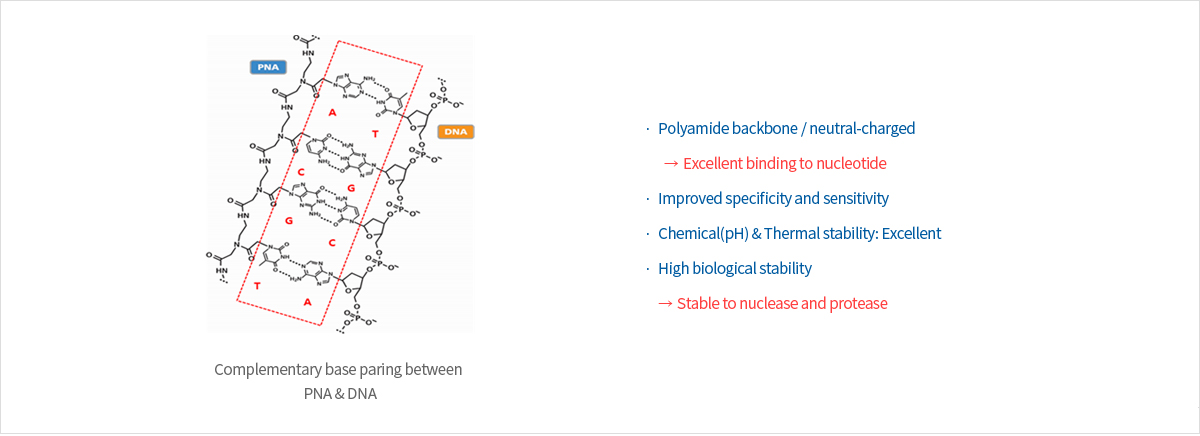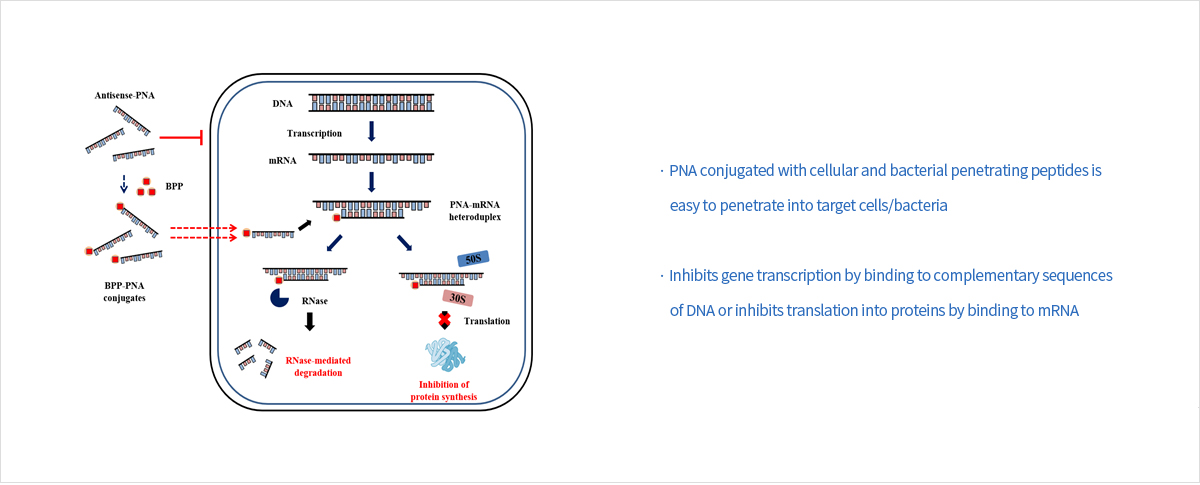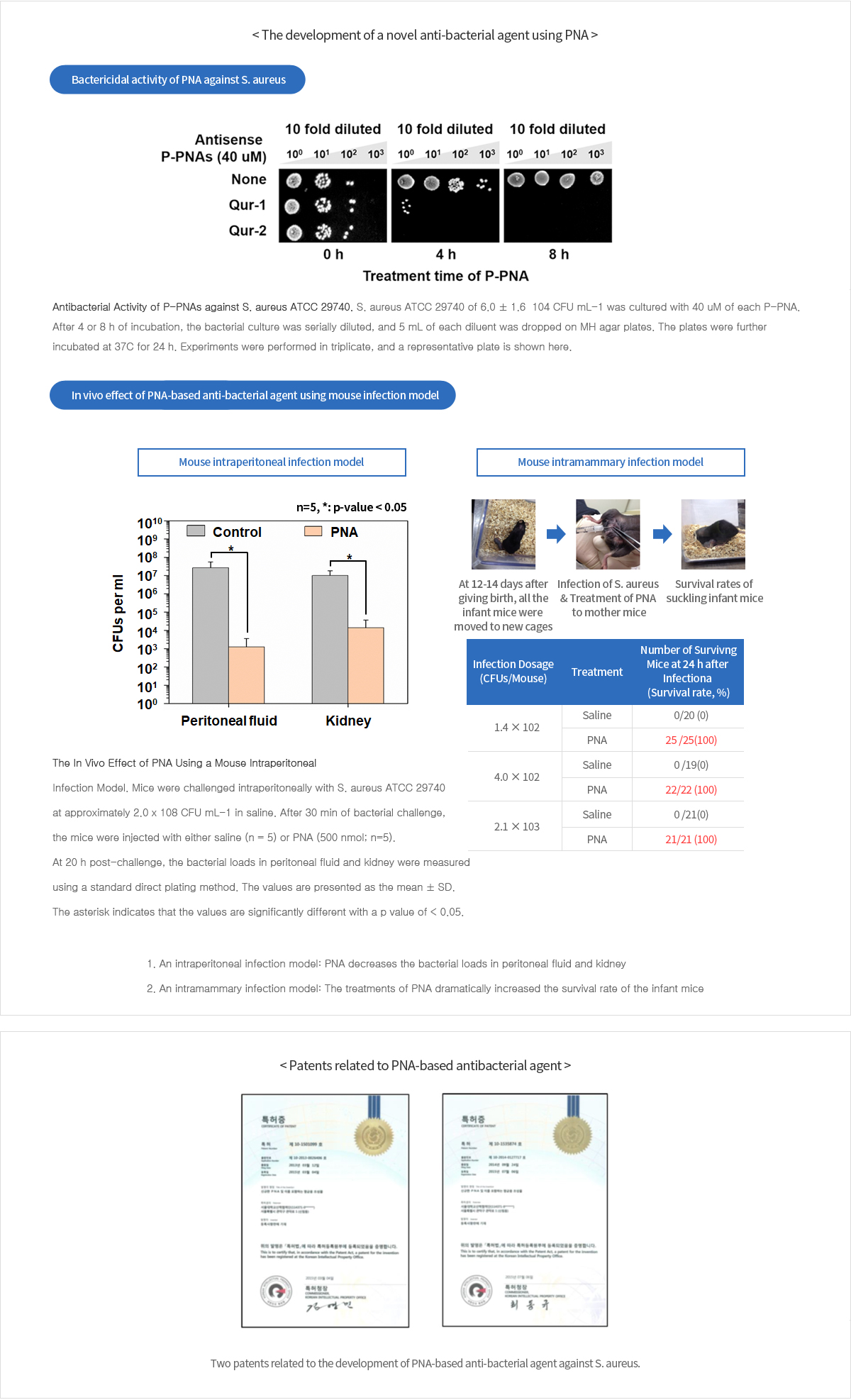We hope to become a company with a social impact that leads the human public health.
Peptide Nucleic Acid (PNA)
- HOME
- Business
- Peptide Nucleic Acid (PNA)
PNA is a synthetic analogue of DNA in which the deoxyribose phosphate backbone is replaced by a polyamide chain.
1. Uncharged and flexible polyamide backbone allows PNA to hybridize with complementary DNAs or RNAs with remarkably high affinity and specificity due to the lack of electrostatic repulsion.
2. PNA is stable under high temperature or over a wide pH range.
3. PNA is highly resistant to either nuclease or protease digestion.
→ Different formulation types is able to be developed based on these physico-chemical properties of PNA, ultimately leading to
expanded indications of PNAs for the treatment of a variety of disease states.

PNAs are able to block the synthesis of the protein of interest by inhibiting transcription or translation through their complementary binding to mRNA and genomic DNA, respectively.

Although antibiotics have made a significant progress in preventing bacterial infections and consequent deaths, the emergence of multidrug-resistant (MDR) bacteria is a global health challenge compromising our ability to effectively treat infections. PNA has the potential to treat these MDR bacteria by targeting the expression of bacterial essential genes. Anti-microbial activity of PNAs was validated with Gram positive bacterium, Gram negative bacterium, and Mycobacterium. The Quratis inc. is currently developing PNA-based antibacterial agents against MDR-TB and Staphylococcus aureus.


